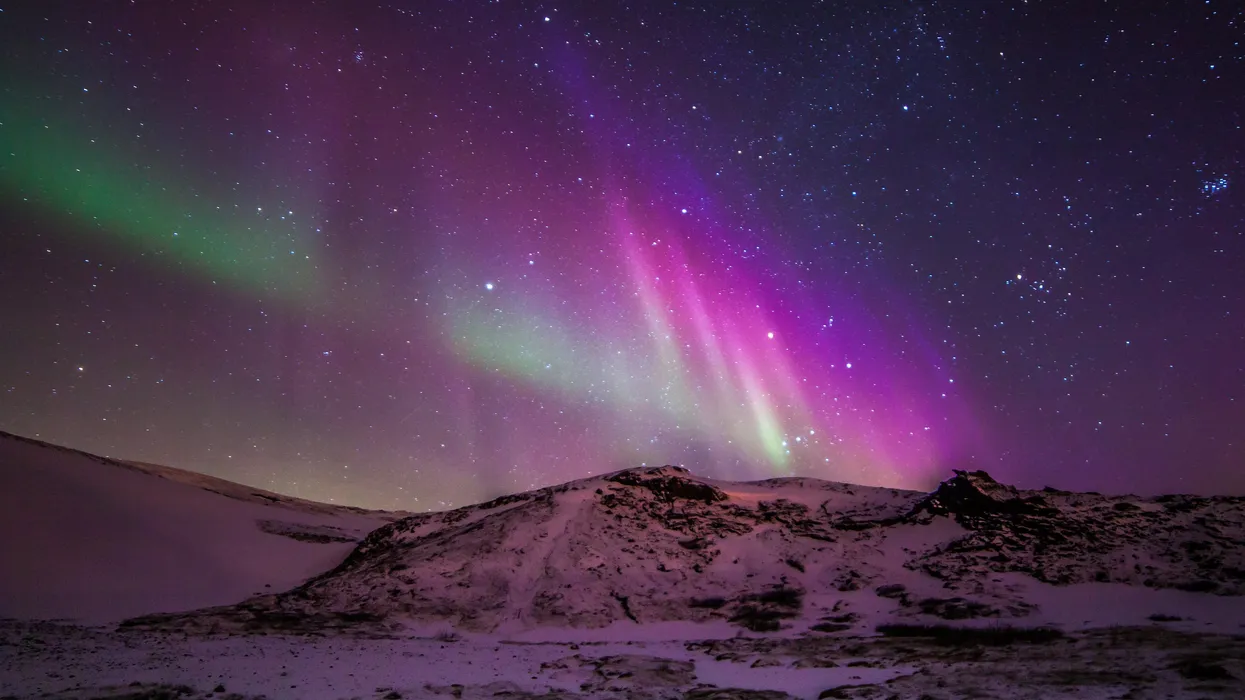Latest News
Latest Ads
-
Jasmine Jewel
Call
-
Omidan group
Call
-
Amir Madanpour
Call
-
Dimo studio
Call
-
Yorkacademy
Call
-
Maryambagheri
Call
-
Shishlix Restaurant
Call

The Northern Lights may be visible across large parts of Canada on the nights of Tuesday, July 22 and Wednesday, July 23.
According to NOAA's Space Weather Prediction Center, a G2, or moderate, storm could develop from Tuesday night into the early hours of Wednesday, July 23.
That strength would give most Canadians a chance to see the northern lights.
The northern lights can be highly variable and scattered as charged particles interact with Earth's magnetic field and upper atmosphere.
Disturbances in Earth's magnetic field are caused by coronal mass ejections (CMEs) on the sun's surface, which contain charged particles hurtling toward our planet at speeds of thousands of kilometers per second.
Tuesday night's component could reach a 6 on the K index, which ranges from 0 to 9, with higher numbers indicating conditions that could cause rainbows to appear at lower latitudes.
Northern Lights in Canada July 22-23
Who can see the northern lights from the front of the stage?
There are several factors that contribute to a possible display of the northern lights in Canada, but whether or not the show will happen depends on where you are in the country.
The best chance of seeing the lights in eastern Canada appears to be in northeastern Ontario, much of eastern Quebec and Labrador, where a cloudless night is expected. Some areas in southern Ontario, away from city light pollution, may be able to see them.
Eastern Canada Cloud Cover Forecast for Tuesday Night
That means rural areas, the Algonquin region and the shores of Lake Huron, we're looking at you.
Meanwhile, in western Canada, the best viewing may be over Edmonton to Calgary, as well as towards Fort McMurray. The night will be cloudless, but very cold, and some areas in the Alberta foothills may freeze. You may need to wear extra layers.
Areas in Yellowknife, N.W.T. and south, as well as northern Saskatchewan and Manitoba, also have a good chance. However, smoke from wildfires in this area may block visibility.
Cloud cover forecast for western Canada for July 22-23
No major disruptions to satellite and communications systems or power grids are expected, but there may be some issues that can be mitigated, including more and longer periods of reduced Global Positioning System (GPS) quality.
News source
Suggested Content
Latest Blog
Login first to rate.
Express your opinion
Login first to submit a comment.
No comments yet.


































